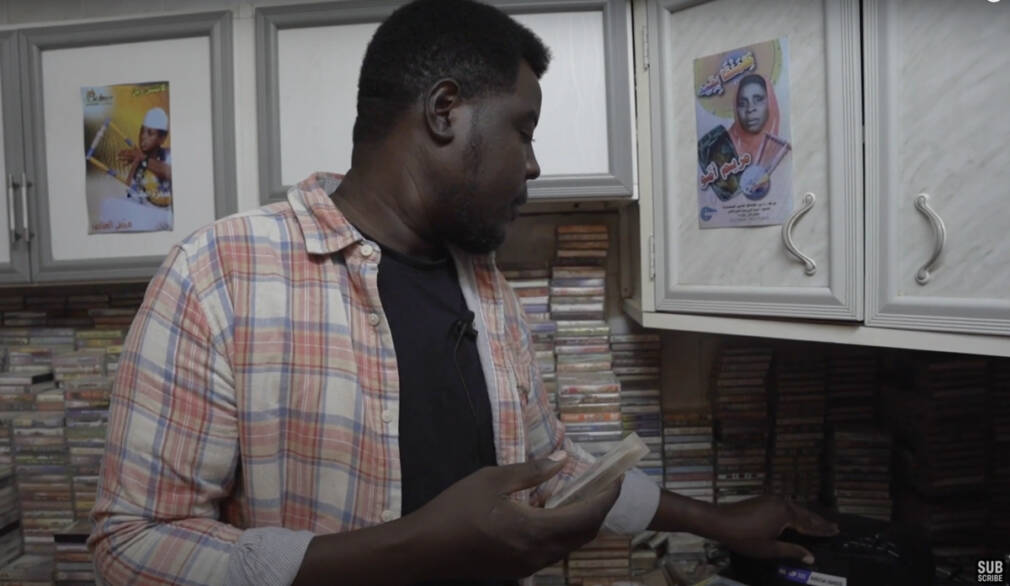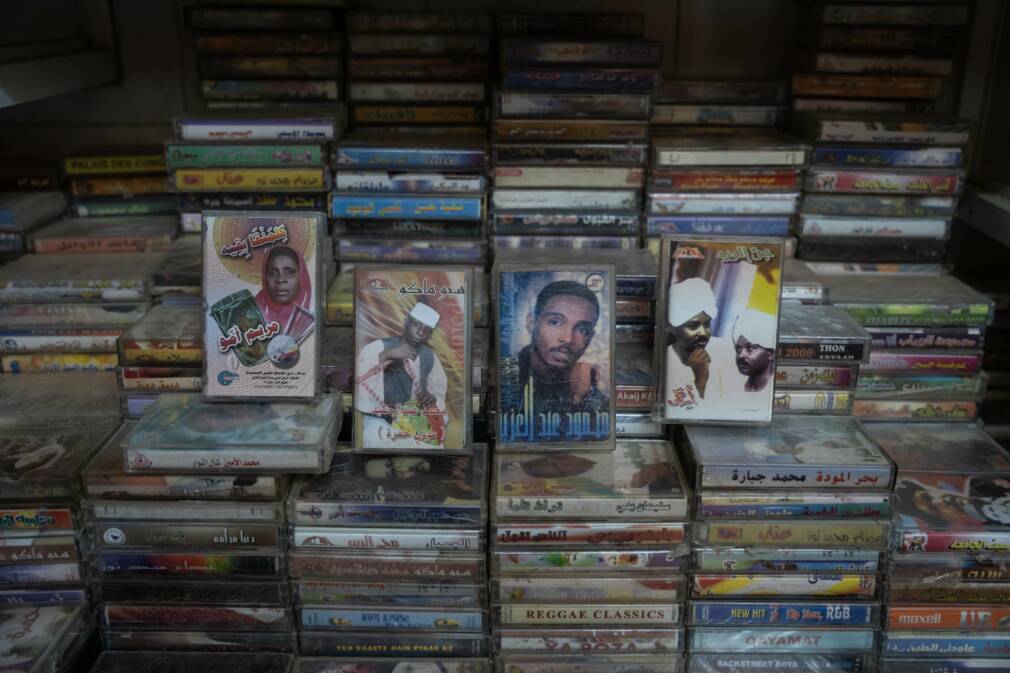“This project is aimed at Sudanese youth, but also at music lovers, whether they are Sudanese or from all over the world, so that our music does not disappear and that it can be listened to and played beyond our borders” explains Abdulsalam El Haj, sitting in a remote room of the Rift Digital Lab, a small space frozen in time in the heart of the Khartoum’s historic center. Behind him, thousands of tapes line the walls. A treasure trove of more than 10,000 pages of Sudanese musical history, rich but going extinct. Passionate about this cultural heritage, Abdulsalam has been amassing physical copies of his favorite projects since high school. But in 2013, the cassette industry came to an end, and he embarked on a wild ride: the Tonjela project. The name refers to the beauty of a woman, but also the beauty of the rhythms and sounds of her country, which radiate through generations of music. Tonjela‘s objective is twofold: to safeguard the sounds and to keep the messages they carry alive.

In order to anchor the work of the greatest names (and the smallest) in the Sudanese repertoire, the Rift Digital Lab digitalizes the cassettes. The task is heavy but of capital importance, because each track is a fragment of a sometimes troubled history, marked by revolutions for which music has become a vector. As Abdulsalam says, “music has always been linked to resistance in Sudan, whether political, social or cultural.” His collection also highlights the richness of nearly 60 years of compositions, as well as the uniqueness of a Sudanese culture at the crossroads of worlds.” There has always been this debate in Sudan about identity, are we Arab or African? The answer is easy, we are Sudanese, we are a people with a great diversity, many tribes but our identity is Sudanese.”
